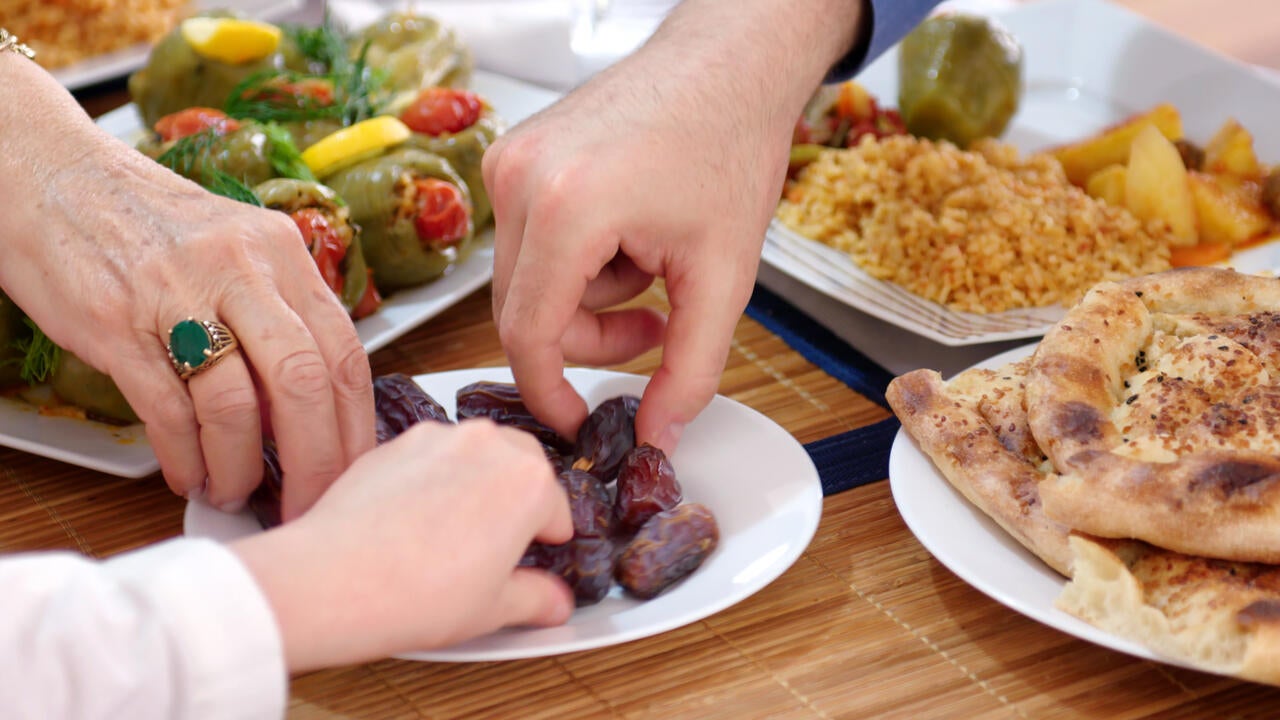
Helping health care providers understand Ramadan
Waterloo School of Pharmacy offers resources for managing medication during the holy month

Waterloo School of Pharmacy offers resources for managing medication during the holy month
By University Relations and Waterloo School of PharmacySunday, May 5 marked the beginning of the Muslim holy month of Ramadan — a time of fasting, prayer and charity for more than one billion Muslims worldwide. Fasting takes place between Suhoor, the morning meal that occurs before sunrise, and Iftar, the evening meal after sunset.
“Often patients with chronic conditions like diabetes and hypertension choose to fast for Ramadan even though they are exempt,” says Wasem Alsabbagh, a pharmacist and professor in the Waterloo School of Pharmacy. “We want to encourage both health care providers and patients to have open discussions about Ramadan and the impact it can have on their health.”
Alsabbagh contributed to a video explaining Ramadan to health care providers so that they may better understand their patients during this month.
During this time, Muslims observing Ramadan will abstain from consuming anything orally, including food, water and medications. There are special exemptions from fasting for young children and those who are ill, pregnant, nursing, menstruating or travelling. However, Ramadan is an important tradition to many and some Muslims may choose to fast even if they fit in one of these exemptions.
Kelly Grindrod, also a professor in the Waterloo School of Pharmacy, led the development of Ramadan resources for health care practitioners that cover a range of health concerns. She believes that pharmacists may be able to accommodate fasting patients with thoughtful medication management. Pharmacists can suggest adjustments for medications that should be taken several times a day or are affected by food and drink intake. They may also consider adjusting the timing for once-daily medications.
For Grindrod and Alsabbagh, having an open conversation with patients is key.
"It is important for pharmacists to ask patients if they are considering fasting and engage in the conversation about safety and necessary adjustments, rather than restricting their intervention to patients who ask," explains Alsabbagh.
Visit the Waterloo School of Pharmacy for a full list of resources.

Read more
Here are the people and events behind some of this year’s most compelling Waterloo stories

Read more
Meet the 14 exceptional students representing Waterloo’s newest grads

Read more
More than 100,000 children and youth from across the region are discovering the wonders of science and technology through the University of Waterloo
The University of Waterloo acknowledges that much of our work takes place on the traditional territory of the Neutral, Anishinaabeg, and Haudenosaunee peoples. Our main campus is situated on the Haldimand Tract, the land granted to the Six Nations that includes six miles on each side of the Grand River. Our active work toward reconciliation takes place across our campuses through research, learning, teaching, and community building, and is co-ordinated within the Office of Indigenous Relations.